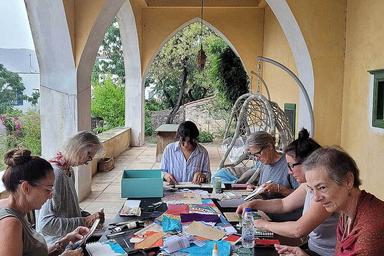
Advances in Eye Care: What Every Patient Should Know
13 Sep, 2023
 Danish Ahmad
Danish AhmadIntroduction:
The field of eye care has undergone remarkable advancements in recent years, offering patients a range of innovative treatments and technologies to maintain and enhance their vision. As our understanding of ocular health deepens, patients should be aware of these developments to make informed decisions about their eye care. This article explores the latest advances in eye care, highlighting key technologies, treatments, and considerations that every patient should know.
1.Refractive Surgery Advancements
Refractive surgery, aimed at correcting vision problems such as nearsightedness, farsightedness, and astigmatism, has evolved significantly. Traditional LASIK (Laser-Assisted In Situ Keratomileusis) has been refined with techniques like bladeless LASIK and PRK (Photorefractive Keratectomy), offering improved precision and faster recovery times. Additionally, newer procedures like SMILE (Small Incision Lenticule Extraction) offer a minimally invasive alternative, providing excellent results with reduced risk of dry eyes.
Most popular procedures in India
2.Implantable Contact Lenses (ICLs)
Implantable contact lenses, also known as ICLs or phakic intraocular lenses, provide an effective solution for patients with high refractive errors who are not suitable candidates for traditional laser eye surgery. ICLs are implanted into the eye's natural lens without removing it, providing clear vision correction. These lenses offer a reversible option for those who may require adjustments in the future.
3.Advanced Cataract Surgery Techniques
Cataract surgery has become one of the most common and successful surgical procedures globally. Advanced techniques, such as laser-assisted cataract surgery and premium intraocular lenses, have enhanced outcomes. Laser-assisted cataract surgery offers improved precision during various stages of the procedure, leading to faster recovery and reduced dependency on glasses post-surgery. Premium intraocular lenses can correct presbyopia, allowing patients to see clearly at different distances without relying on bifocals or reading glasses.
Wellness Treatments
Give yourself the time to relax
Lowest Prices Guaranteed!

Lowest Prices Guaranteed!
4.Artificial Intelligence in Diagnostics
Artificial intelligence (AI) is making significant strides in diagnosing and managing eye conditions. AI-powered systems can analyze retinal images for signs of diabetic retinopathy, macular degeneration, and glaucoma. These technologies enable early detection and timely intervention, potentially preventing irreversible vision loss. Additionally, AI-assisted surgeries are enhancing surgical precision and outcomes.
5.Gene Therapies for Genetic Eye Disorders
Gene therapies are revolutionising the treatment of genetic eye disorders that were previously considered untreatable. Conditions like Leber's congenital amaurosis and retinitis pigmentosa, which result in progressive vision loss, are being targeted with innovative gene therapies. These treatments aim to replace or repair faulty genes, potentially restoring vision and improving patients' quality of life.
6.Dry Eye Treatments
Advances in dry eye treatment have led to a better understanding of the condition and more effective management options. From innovative tear supplements and anti-inflammatory medications to thermal treatments and advanced diagnostic tools, patients suffering from dry eye can benefit from a personalised approach that targets the root cause of their symptoms.
7.Myopia Control Strategies
Childhood myopia (nearsightedness) is on the rise globally, prompting the development of myopia control strategies. Orthokeratology (Ortho-K) involves wearing specially designed contact lenses at night to reshape the cornea, temporarily correcting myopia during the day. Additionally, low-dose atropine eye drops have shown promise in slowing the progression of myopia in children.
8.Telemedicine for Eye Care
Telemedicine has gained prominence, allowing patients to consult with eye care professionals remotely. Through virtual appointments, patients can receive guidance on various eye conditions, discuss symptoms, and receive prescriptions for eyeglasses or medications. While not a substitute for comprehensive in-person exams, telemedicine provides convenient access to expert advice.
Advances in eye care have made significant strides in recent years, offering patients new and improved treatments, technologies, and insights into maintaining and enhancing their vision. Here are some key advances in eye care and how they can make a difference for patients:
1. Laser-Assisted Cataract Surgery: Traditional cataract surgery involves the removal of the cloudy lens and its replacement with an intraocular lens. Laser-assisted cataract surgery uses lasers to perform some of the initial steps, making the procedure more precise and potentially reducing recovery time.
2. Customised Intraocular Lenses (IOLs): Patients can now choose from a range of IOLs that can correct vision problems like astigmatism and presbyopia during cataract surgery. Customised IOLs improve postoperative vision and reduce the need for glasses.
3. Minimally Invasive Glaucoma Surgery (MIGS): For patients with glaucoma, MIGS procedures provide a less invasive way to lower intraocular pressure and slow disease progression. These procedures have a quicker recovery time compared to traditional glaucoma surgeries.
4. Corneal Cross-Linking: This treatment is used to strengthen the cornea and halt the progression of conditions like keratoconus and corneal ectasia. It can prevent the need for more invasive procedures like corneal transplants.
5. Retinal Imaging and Diagnostics: Advances in retinal imaging technology, such as Optical Coherence Tomography (OCT), allow for earlier and more accurate detection of conditions like age-related macular degeneration (AMD) and diabetic retinopathy.
6. Gene Therapy: Gene therapy holds promise for treating certain inherited eye diseases like Leber congenital amaurosis and retinitis pigmentosa. It involves the introduction of healthy genes to replace or repair defective ones.
7. Artificial Intelligence (AI) in Diagnosis: AI algorithms are being developed to analyse medical images and help diagnose eye diseases more quickly and accurately. This can lead to early intervention and better outcomes.
8. Telemedicine and Remote Monitoring: Telemedicine allows patients to consult with eye care professionals remotely, making it easier for individuals in remote areas or those with mobility issues to access care. Remote monitoring devices can help track conditions like glaucoma or macular degeneration more effectively.
9. Contact Lens Innovations: Contact lenses have become more comfortable and advanced, with options for correcting vision problems and addressing dry eyes. Some contact lenses even have technology to monitor glucose levels in tears for diabetic patients.
10. Neuroprotection for Optic Nerve Disorders: Research into neuroprotection aims to prevent or slow down optic nerve damage in conditions like glaucoma and multiple sclerosis, potentially preserving vision.
These advances in eye care can make a significant impact on patients' lives by improving the accuracy and safety of surgical procedures, enhancing vision correction options, and enabling earlier detection and management of eye diseases. Patients should stay informed about these advances and work closely with their eye care professionals to determine the most appropriate treatments and technologies for their specific needs. Regular eye exams remain crucial for maintaining eye health and detecting potential issues early on.
How can we help with the treatment?
If you're on the lookout for treatment in India, Thailand, Singapore, Malaysia, UAE, and Turkey, let Healthtrip be your compass. We will serve as your guide throughout your medical treatment. We'll be by your side, in person, even before your medical journey commences. The following will be provided to you:
- Connect with renowned doctors from a network spanning 35+ countries and access the world's largest health travel platform.
- Collaboration with 335+ top hospitals , including Fortis and Medanta.
- Comprehensive treatments from Neuro to Cardiac to Transplants, Aesthetics, and Wellness.
- Post-treatment care and assistance.
- Teleconsultations at $1/minute with leading surgeons.
- Trusted by 44,000+ patients for appointments, travel, visa, and forex assistance.
- Access top treatments and packages, such as Angiograms and many more.
- Gain insights from genuine patient experiences and testimonials.
- Stay updated with our medical blog.
- 24/7 unwavering support, from hospital formalities to travel arrangements or emergencies.
- Pre-scheduled specialist appointments.
- Prompt emergency assistance, ensuring safety.
Our success stories
Conclusion:
Advances in eye care have transformed the landscape of vision correction and ocular health management. From refined refractive surgery techniques to cutting-edge gene therapies, patients now have access to an array of options for preserving and enhancing their vision. Staying informed about these developments empowers patients to collaborate with eye care professionals in making informed decisions tailored to their individual needs. Whether considering vision correction procedures, seeking treatments for eye conditions, or simply maintaining ocular health, being aware of the latest advancements ensures that patients can make the best choices for their eyes and overall well-being.
Read also: The Latest Advances in Ophthalmology
Related Blogs

Discover the Power of Clear Vision at Udhi Eye Hospital
Experience world-class eye care at Udhi Eye Hospital, where our

Discover the Future of Eye Care with Dr. Agarwal's
Experience world-class eye care services at Dr. Agarwal's Eye Hospital

Discover the Best Eye Care Experience at LV Prasad Eye Institute
Get world-class eye care treatment at LV Prasad Eye Institute,

Transforming Vision, Transforming Lives: EYE 7 CHAUDHARY EYE CENTRE Story
Read the inspiring story of EYE 7 CHAUDHARY EYE CENTRE,

Revolutionizing Eye Care: Experience Excellence at EYE 7 CHAUDHARY EYE CENTRE
Get the best eye care treatment at EYE 7 CHAUDHARY

Saudi Arabia's Most Advanced Eye Care Hospitals
Acupuncture can help mouth cancer patients cope with pain and










